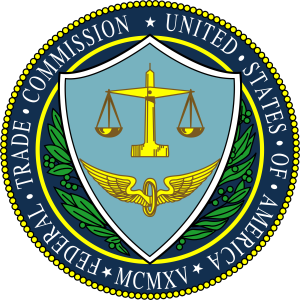 Last week, the FTC brought its first action against a social media influencer for failing to make appropriate disclosures on sponsored posts. While it had previously prosecuted companies who pay influencers for posts such as Lord & Taylor and Warner Brothers, this marks the first time the FTC has pursued an influencer.
Last week, the FTC brought its first action against a social media influencer for failing to make appropriate disclosures on sponsored posts. While it had previously prosecuted companies who pay influencers for posts such as Lord & Taylor and Warner Brothers, this marks the first time the FTC has pursued an influencer.
The FTC chose a pair of popular influencers in the online gaming community as their first targets. Trevor “TmarTn” Martin and Thomas “Syndicate” Cassell allegedly endorsed the online gambling service CSGO Lotto without disclosing that they jointly owned the company and were its president and vice president, respectively. They also allegedly paid other influencers to post on various social media platforms about CSGO Lotto without requiring that they disclose any sponsorship.
By bringing the action, the FTC intended to send a message. In a statement about the action, Acting Chairman Maureen Ohlhausen said, “[t]his action, the FTC’s first against individual influencers, should send a message that such connections must be clearly disclosed so consumers can make informed purchasing decisions,” she explained. “Consumers need to know when social media influencers are being paid or have any other material connection to the brands endorsed in their posts.”
For its first influencer action, the FTC appears to have stayed somewhat true to form by going after influencers who posted sponsored posts but that also played the role of paying others to post. This does not necessarily mean that the FTC is not going after pure influencers, however. In fact, in addition to bringing this first influencer action, the FTC also recently issued warning letters to a group of social media influencers to whom it had previously sent educational letters. The new letters cited to specific posts that caught the agency’s eye and provided details as to why the posts may not comply with disclosure requirements.
In addition to prosecuting its first influencer and issuing warning letters, the FTC also updated its guidance for necessary disclosures on promotional posts, taking into account some new social media platforms developments. Among other things, the FTC advised that posts on Snapchat and Instagram Stories should have words superimposed over the images that disclose sponsorship. It also advised that use of Instagram’s new built-in feature to disclose that a post is sponsored may not “necessarily” constitute adequate disclosure. The feature, released this summer, automatically adds the language “Paid partnership with…” at the top of the post. The FTC’s new guidance makes clear that there’s no guarantee against FTC prosecution simply by using a platform’s built-in disclosure mechanisms.
All signs point to the FTC taking the issue of social media influencers and undisclosed or insufficiently disclosed sponsored posts seriously. Anyone who posts sponsored material or even tags a brand in a post—especially those that have received a warning letter from the FTC—should take the possibility of FTC prosecution seriously.
 Internet & Social Media Law Blog
Internet & Social Media Law Blog


